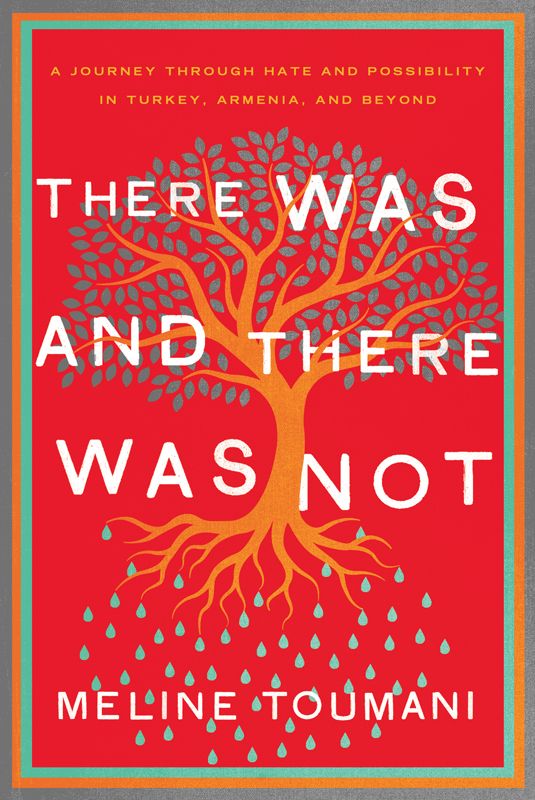
There Was and There Was Not
A Journey Through Hate and Possibility in Turkey, Armenia, and Beyond
کتاب های مرتبط
- اطلاعات
- نقد و بررسی
- دیدگاه کاربران
نقد و بررسی

November 24, 2014
Born in Iran and raised in the United States, Toumani always knew that she was first, an Armenian. Her childhood was punctuated by commemorations of the 1915 killing of Armenians by the Turkish government and resentment at Turkey's refusal to admit that this was an act of genocide. As Toumani enters adulthood, she begins to wonder if "there was a way to honor history without being suffocated by it." This leads to a two-year odyssey across Turkey in search of, not truth, but explanations. She learns that rather than acknowledging slaughter, Turkish history classes brand Armenians as traitors who had fought against Turkey in WWI and had been deported as a result. She makes Turkish friends who are eager to help her search but when she tells her aunt how kind they are to her, the woman is horrified. In the end, Toumani concludes that, if hate is all that holds a group together, there is no reason for it to exist. This book doesn't take sides but it does show what these old grudges do to people living. This is a powerful memoir with a message for all who were raised to see only one side of a story.

Starred review from August 15, 2014
A young Armenian-American journalist examines her identity and personal history. New York Times contributor Toumani grew up hating Turkey. She knew that between 1915 and 1923, nearly 1 million Armenians were massacred and another 1 million deported from the Ottoman Empire, a surge of violence that punctuated generations of oppression. She also knew that the Armenian diaspora was obsessed with world recognition of the conflict as genocide, a term that Turkey vehemently rejected. Even 100 years later, many Armenians are still ferocious in their abhorrence of all things Turkish. But for Toumani, that hatred had come "to feel like a chokehold, a call to conformity," and she wanted "to understand how history, identity, my clan and my feeling of obligation to it, had defined me." That search took her to Turkey, where she lived for more than two years, interviewing writers, historians, students, professors and activists about the fraught relationship of Turks to ethnic minorities. Cautious about admitting that she was Armenian, Toumani discovered that once she did, "the distance from 'Nice to meet you' to the words 'so-called genocide' was sometimes less than two minutes long." Many Turks claimed to have Armenian friends, but stereotypes were deeply entrenched: Armenians were greedy, shifty and duplicitous. The murder of an outspoken journalist who worked to find common ground between Turks and Armenians brought political hatreds into stark view. Arriving with the idea that "soft reconciliation was important and valuable-that simply getting Turks and Armenians to interact as human beings seemed like a major step," Toumani felt increasingly frustrated with the intolerance she encountered and with her own prejudices, which "seemed stronger than ever." She came to believe that the term "genocide" is no more than a clinical label that dilutes the visceral reality of the past. This remarkable memoir serves as a moving examination of the complex forces of ethnicity, nationality and history that shape one's sense of self and foster, threaten or fray the fragile tapestry of community.
COPYRIGHT(2014) Kirkus Reviews, ALL RIGHTS RESERVED.

Starred review from December 1, 2014
Born in Iran and ethnically Armenian, Toumani (former journalism fellow at the Inst. for Human Sciences, Vienna, Austria; former coordinator of the Russian-American Journalism Inst. in Rostov-on-Don, Russia) grew up in a diaspora in New Jersey where the 1915 Armenian genocide at the hands of the Ottoman government came up daily in conversation. Her neighbors boycott Turkish products, refuse to patronize businesses owned by Turks, and constantly talk about the genocide to anyone who will listen. So when the author leaves her job at the New York Times and moves to Istanbul to confront and understand her historic enemy, she is forced to explore complex questions of ethnic identity and how to memorialize a tragedy without letting it consume her. She loosens the shackles of her past by immersing herself in the culture of her sworn enemy, a lesson many readers will relate to. VERDICT This brave and balanced personal narrative will be a welcome addition to the canon of books written about the century of hatred between Turks and Armenians. [See Prepub Alert, 6/2/14.]--Erin Shea, Darien Lib., CT
Copyright 2014 Library Journal, LLC Used with permission.

October 1, 2014
Toumani grew up in New Jersey reflexively hating and avoiding anything Turkish, like most Armenians in the diaspora, and holding onto an obsession for recognition by Turkey of the massacre of more than a million Armenians. The massacre was part of the clash between Turks and Armenians in the Ottoman Empire in 1915, in the years leading up to WWI. Yet Toumani also felt vaguely uncomfortable about the certainty of the Armenian version of what had transpired. On a quest to find peace with the atrocities of a century ago, she set off to travel to the hated Turkey. Craving some recognition of the genocide, what she found was minimal recognition and complex views of the past and what it might mean going forward. For four years, she traveled repeatedly to Turkey, fascinated by its beauty, meeting extraordinary people, on all sides of the ongoing dispute, with a longing to get beyond the far distant past. She learns to acknowledge commonalities, including the Armenian and Turkish tradition of starting a story by saying, There was and there was not, itself an acknowledgment of conflicting narratives.(Reprinted with permission of Booklist, copyright 2014, American Library Association.)

























دیدگاه کاربران